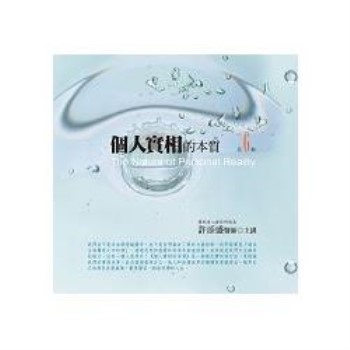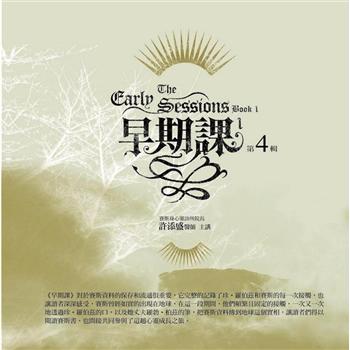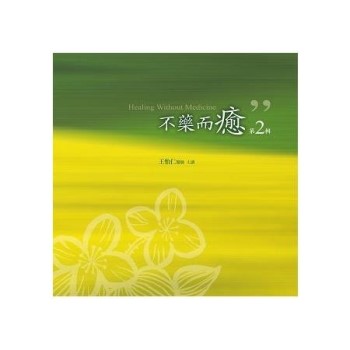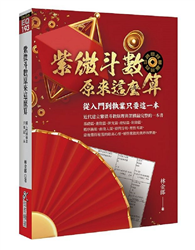前言
許多人學英文多年後,往往發現自己的程度總是停滯不前,說、寫出來的都是中式英文。苦惱的是不知道如何改進,因為文法、用法有書可查,正確、道地英文卻無規則可循。本書搜集近千句常見的中式英文,以分類方式探討其成因,讓讀者迅速掌握訣竅,說、寫出正確而道地的英文。
一提到中式英文,很多人便會聯想到people mountain people sea(人山人海),green oil oil(綠油油),horse horse tiger tiger(馬馬虎虎)等等大家耳熟能詳的例子。但是嚴格來說,這些只是遊戲式的說法,沒有「資格」稱為中式英文,稍具英文知識的人不會這麼用。
所謂中式英文,是指受中文思維影響,也就是語言學家所稱的「母語的干擾」(mother-tongue interference)而使用的不正確的英文。例如把「開燈」說成open the light、「開電視」說成open the TV、「開支票」說成open a check等等,都是典型的中式英文。使用中式英文,輕者會阻礙溝通,重者還可能造成誤會,不可不慎。
在學習英文的過程中,尤其在高中階段,由於缺乏英文文詞彙和文法結構不同的認知,常有犯了中式英文而不自知的現象。這種錯誤如不及早改正,就是上了大學,以至出社會做事仍然會繼續再犯。
作者潛心研究中式英文四十多年,發現在學生習作錯誤中,除了冠詞和副詞之外,幾乎都有中式英文的影子。本書首創以分類方式探討中式英文的成因,舉例說明,並提出解決之道。
全書分成十一章,另加兩篇附錄,完全取材自學生的實際寫作錯誤範例,以正、誤句子呈現,並附以解釋說明。原稿都經加拿大籍英文老師修正,具有相當的準確性。兩位老師文字修養極好,且都擁有英文碩士學位,任教英文數十年。衷心希望本書不僅成為愛好英文人士的參考書,也廣為各級學校採用的翻譯、作文教科書。
誤用文法搭配造成的中式英文
文法搭配指名詞或形容詞與介系詞或其他文法結構的連用關係,包括「名詞+介系詞」、「介系詞+名詞」、「動詞+介系詞」、「形容詞+介系詞」等等,其中以前三項較為重要,茲舉例如下:
a)名詞+介系詞
1)我接到一張五萬美金的支票。
【正】:I received a check for US$50,000.
【誤】:I received a check of US$50,000.
2)他是川普總統的外交政策顧問。
【正】:He is an advisor to President Trump on foreign policy.
【誤】:He is an advisor of President Trump on foreign policy.
3)她是林董事長的祕書。
【正】:She is secretary to Chairman Lin.
【誤】:She is a secretary of Chairman Lin.
【解說】:(1) 以上三句介系詞用of,原因是由「……的……」直譯而來的中式英文。(2) 「當某人秘書」secretary前不用a.
b)介系詞+名詞
1)從你臉上的表情,我可以看得出你有了麻煩。
【正】:I can see by the expression on your face that you are in trouble.
【誤】:I can see from the expression on your face that you are in trouble.
【解說】:【誤】句用from,是受中文「從……」影響。
2)他自願做那件事。
【正】:He did it of his own free will.
【誤】:He did it by his own free will.
C)動詞+介系詞
1)我們恭賀約翰弄璋之喜。
【正】:We congratulated John on the birth of his son.
【誤】:We congratulated John for the birth of his son.
2)老師稱讚他很勤奮。
【正】:The teacher praised him for his diligence.
【誤】:The teacher praised his diligence.
以下是學生習作的錯誤例子:
2-1.父母的行為對子女有深遠的影響。
【正】:Parents’ behavior has a profound influence on their children.
【誤】:Parents’ behavior has a profound influence to their children.
【解說】:influence / effect / impact後均接on,【誤】句用to是由中文「對……影響」的「對」直譯而成的錯誤。
2-2.老師對學生應該要嚴格。
【正】:Teachers should be strict with their students.
【誤】:Teachers should be strict to their students.
【解說】:和上句一樣,看到「對……」,學生一成不變的就用to,不免犯錯。 be strict with是固定搭配。「對……嚴格」還可以說be hard on,例:His parents are hard on him.
2-3.這件處罰對我不公平。
【正】:The punishment is not fair to me.
【誤】:The punishment is not fair for me.
【解說】:「對…...公平/ 不公平」要說be fair / unfair to,介系詞不能用for.
2-4.體育課對於增進學生的身體健康有幫助。
【正】:Physical education is helpful in improving students’ health.
【誤】:Physical education is helpful to improve students’ health.
【解說】:be helpful in是固定搭配。【正】句亦可說:Physical education helps to improve students’ health.
2-5.他出生在富裕家庭。
【正】:He was born into a rich family.
【誤】:He was born in a rich family.
2-6.我今天從學校學到很多東西。
【正】:I learned many things in school today.
【誤】:I learn many things from school today.
【解說】:(1)【誤】句介系詞用from,顯然是受中文「從」的影響造成的錯誤。(2)【誤】句另一個錯誤是learn用現在式。很多人誤以為副詞today時間點還是現在,所以用現在式,這是錯誤的觀念,因為既然已學到了,動作已經過去,就要用過去式。(3) I learned many things from Professor Sun.句中的from是正確的。
2-7.
a) 我們可以從網上下載很多資訊。
【正】:We are able to download a lot of information from the Internet.
【誤】:We are able to download a lot of information on the Internet.
b) 我們可以從網上搜尋很多資訊。
【正】:We are able to search a lot of information on the Internet.
【誤】:We are able to search a lot of information from the Internet.
c) 我們可以從網上獲取很多資訊。
【正】:We are able to acquire/get/obtain a lot of information from the Internet.
【誤】:We are able to acquire/get/obtain a lot of information on the Internet.
【解說】:Internet前的介詞要隨著動詞而變化,亦即:download information from the Internet, search information on the Internet, acquire/get/obtain information from the Internet.
2-8. 竊賊好像是從窗戶爬進來的。
【正一】:The burglar seemed to have entered by the window.
【正二】:The burglar seemed to have entered from the window.
【正三】: The burglar seemed to have entered through the window.
【誤】:The burglar seemed to have entered by means of the window.
【解說】:(1) 介系詞by表「經由……」之意,例:We flew to London by way of Paris.(我們經由巴黎飛往倫敦)。(2) by means of 是「藉由,藉著」之意,例如:He got the job by means of his father’s influence. (他藉著父親的影響力得到那份工作)。 【誤】句…entered by means of the window語意不清。
2-9. 地上蓋滿了雪。
【正】:The ground is covered with snow.
【誤】:The ground is covered by snow.
【解說】:be動詞+過去分詞一般都接by,例如John was fired by his manager.(John被經理開除)。但本句的be covered with是固定搭配,意為「蓋滿……,充滿……」。be covered by 意思不同,例:The house is covered by insurance.(這棟房已保了險)/ Shipping is not covered by the quotation.(報價中不包括運費)。
2-10.幸福不是用金錢可以買得到的。
【正】:Happiness cannot be bought with money.
【誤】:Happiness cannot be bought by money.
【解說】:介系詞with表「手段、工具」之意,例:eat with a knife and fork用刀叉吃/ He caught the ball with his left hand.他用左手接球。
| FindBook |
有 14 項符合
中式英文面面觀:英漢辭典主編用近1000則例句,教你全面破解中式英文的謬誤的圖書 |
| 最新圖書評論 - | 目前有 3 則評論,查看更多評論 |
|
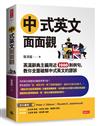 |
中式英文面面觀:英漢辭典主編用近1000則例句,教你全面破解中式英文的謬誤 作者:簡清國 出版社:時報文化出版企業股份有限公司 出版日期:2021-01-27 語言:繁體書 |
| 圖書選購 |
| 圖書館借閱 |
| 國家圖書館 | 全國圖書書目資訊網 | 國立公共資訊圖書館 | 電子書服務平台 | MetaCat 跨館整合查詢 |
| 臺北市立圖書館 | 新北市立圖書館 | 基隆市公共圖書館 | 桃園市立圖書館 | 新竹縣公共圖書館 |
| 苗栗縣立圖書館 | 臺中市立圖書館 | 彰化縣公共圖書館 | 南投縣文化局 | 雲林縣公共圖書館 |
| 嘉義縣圖書館 | 臺南市立圖書館 | 高雄市立圖書館 | 屏東縣公共圖書館 | 宜蘭縣公共圖書館 |
| 花蓮縣文化局 | 臺東縣文化處 |
|
|
圖書介紹 - 資料來源:TAAZE 讀冊生活
圖書名稱:中式英文面面觀:英漢辭典主編用近1000則例句,教你全面破解中式英文的謬誤
你的英文程度為何總是停滯不前?
原來是因為「說、寫英文時,除了冠詞和副詞外,都有中式英文的影子」!《建宏多功能英漢辭典》主編簡清國教授,在本書中以分類方式探討其成因,讓讀者迅速掌握訣竅,說、寫出正確而道地的英文。
簡教授鑽研中式英文四十多年,如今耗時十年,淬鍊成本書十一章精華。想要英文突飛猛進,閱讀本書就夠!
網路時代充斥著各種資訊,讓人眼花撩亂,無所適從。以「我們都知道健康很重要」來說,一上網查,就有一大堆We all know that health is important. 的例句,讓人以為這是正確的英文,真是誤人子弟,莫此為甚。期盼讀者諸君慎思明辨:這種表達法口說尚無妨,書寫時一定要避免,因為不合乎慣用法。--簡清國
本書特色
突破傳統:首創以分類方式探討中式英文成因,舉例說明,並提出解決之道。
近1000則例句:搜集近千句因文法搭配、詞彙搭配、句型、邏輯等錯誤而造成的中式英文,以正、誤方式舉例說明,一目瞭然。
自我評量:每章節後備有學習自評練習,方便讀者進一步鞏固前章節之學習內容。
例句實用且生活化:涵蓋所有考試與日常寫作素材,無論書寫何種類型文章,都能運用自如。
英文顧問 Peter J. Gibson、Ronald A. Jesterhoudt
專文推薦 余玉照(國立嘉義大學前副校長暨人文藝術學院院長)、林茂松(東吳大學前英文系教授兼外語學院院長)、陳東榮(國立中央大學前英文系教授兼主任)
贊同推薦 王安琪(東吳大學英文系專任教授)、蔡淇華(暢銷書作家/惠文高中英文老師)
中式英文Chinglish受母語干擾,不熟悉英文人士語言習慣,往往「倉頡造句」貽笑大方。本書協助我們一一破解,擺脫似是而非的陷阱。--王安琪
就好像數位改變世界,由0與1二元開始最快。
學好英文,由中式英文跟正確英文的二元對比最快。--蔡淇華
作者經過多年辛勤的鑽研細究,終於成功開發了一整套精湛實用的學術資源,不僅能藉以精確診斷中式英文的複雜成因,而且能針對當今中式英文所面臨的各樣症狀,施予真正具有療效的各種處方,同時還能靈活參酌字彙搭配法則、文法、英文慣用法與思維邏輯等多元評量觀點與造句評等標準,隨時提供有關追求道地英文所需既深刻又細膩的相關論述解說。--余玉照
母語干擾可以經由訓練轉化為學習外語的助力,而不是阻力。藉由分析、歸納、比較兩種語言與文化的差異,熟悉這些相異之處,寫作時不但可以刻意避免,還有助於書寫道地正確的目標語。--林茂松
我覺得中譯英的練習有助於學習道地的英文。本書是練習翻譯的好教材。學生可先試譯書中的中文例句成英文,然後再參照作者提供的正解,仔細比較分析,體會其中奧妙,如此將會更深刻地暸解和掌握兩種語文。--陳東榮
做個小測驗吧!
下面十句中譯英,有些正確,有些錯誤。認為每句都正確的人,一定得買這本書!欲知答案,請連結:
https://reurl.cc/9Xd8An
1.在得來速餐廳,可在車上取餐,不必下車。
People do not need to get off their vehicles when they buy food at a drive-in restaurant.
2.上下班尖峰時刻,駕駛人要多花時間等紅燈。
During rush hour, drivers have to wait for red lights longer.
3.我們可以在網上搜尋很多資訊。
We can search a lot of information from the Internet.
4.他為了自衛而殺死強盜。
He killed the robber for self-defense.
5.搭乘捷運有許多優點。
There are many advantages for you to take the MRT.
6.醫師每天要面對痛苦的病人。
Doctors have to face many patients in pain every day.
7.坐公車最大的優點是便宜。
The greatest advantage of riding the bus is low cost.
8.雞肉比其他肉類要有營養。
Chicken has more nutrition than other meats.
9.雖然他才35歲,健康狀況卻不好。
Although he is only 35 years old, he has poor health.
10.夜間未好好休息,第二天我就無法專注學業。
Without a good rest at night, I will not be able to focus on my studies the next day.
作者簡介:
簡清國
簡清國教授自臺灣東吳大學退休後,移居溫哥華,創辦一所語言學校,教授臺灣、大陸移民子弟英文。二十多年來,積累了不少華人學生英文寫作上的錯誤示範。如今集結成書,冀望能嘉惠莘莘學子。
作者著作一覽表
1.《文鶴英文用法詞典》(1985)
2.《建宏多功能英漢詞典》(繁體版:1992)
3.《外研社建宏多功能英漢詞典》(簡體版:1997)
4.《細說如何精通英文》(1993)
5.《當代英文搭配詞典》(1994)
6.《建宏e世代英漢詞典》(2001)
7.《漢英大詞典》副主編(上海交通大學出版社:1993)
章節試閱
前言
許多人學英文多年後,往往發現自己的程度總是停滯不前,說、寫出來的都是中式英文。苦惱的是不知道如何改進,因為文法、用法有書可查,正確、道地英文卻無規則可循。本書搜集近千句常見的中式英文,以分類方式探討其成因,讓讀者迅速掌握訣竅,說、寫出正確而道地的英文。
一提到中式英文,很多人便會聯想到people mountain people sea(人山人海),green oil oil(綠油油),horse horse tiger tiger(馬馬虎虎)等等大家耳熟能詳的例子。但是嚴格來說,這些只是遊戲式的說法,沒有「資格」稱為中式英文,稍具英文知識的人不會這...
許多人學英文多年後,往往發現自己的程度總是停滯不前,說、寫出來的都是中式英文。苦惱的是不知道如何改進,因為文法、用法有書可查,正確、道地英文卻無規則可循。本書搜集近千句常見的中式英文,以分類方式探討其成因,讓讀者迅速掌握訣竅,說、寫出正確而道地的英文。
一提到中式英文,很多人便會聯想到people mountain people sea(人山人海),green oil oil(綠油油),horse horse tiger tiger(馬馬虎虎)等等大家耳熟能詳的例子。但是嚴格來說,這些只是遊戲式的說法,沒有「資格」稱為中式英文,稍具英文知識的人不會這...
顯示全部內容
目錄
推薦語 王安琪、蔡淇華
推薦序 在道地英文的呼喚中道別中式英文 余玉照
推薦序 從中式英文到道地英文 林茂松
推薦序 英文如何表達才會道地自然? 陳東榮
前言
致讀者
第一章 誤用詞彙搭配造成的中式英文
第一章練習題
第二章 誤用文法搭配造成的中式英文
第二章練習題
第三章 經由翻譯程序直譯造成的中式英文
第三章練習題
第四章 誤用動詞造成的中式英文
一、to be / to have
二 、動詞時態
A)表示趨勢的動詞
B)表示事實、真理、習慣的動詞
C) 情態動詞
三、 幾個容易誤用的動詞 / 動詞片語
四...
推薦序 在道地英文的呼喚中道別中式英文 余玉照
推薦序 從中式英文到道地英文 林茂松
推薦序 英文如何表達才會道地自然? 陳東榮
前言
致讀者
第一章 誤用詞彙搭配造成的中式英文
第一章練習題
第二章 誤用文法搭配造成的中式英文
第二章練習題
第三章 經由翻譯程序直譯造成的中式英文
第三章練習題
第四章 誤用動詞造成的中式英文
一、to be / to have
二 、動詞時態
A)表示趨勢的動詞
B)表示事實、真理、習慣的動詞
C) 情態動詞
三、 幾個容易誤用的動詞 / 動詞片語
四...
顯示全部內容
圖書評論 - 評分:
| |||
| |||
|
|

